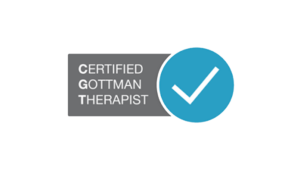Obsessive-Compulsive Disorder (OCD) is a chronic mental health condition characterized by persistent, unwanted thoughts (obsessions) and repetitive behaviors (compulsions) performed to relieve the distress caused by these thoughts. While everyone experiences worries or repetitive behaviors occasionally, people with OCD feel trapped in a cycle that can significantly disrupt their daily lives. In this blog post, we’ll explore the symptoms and causes of OCD, the impact it can have on individuals, and how therapy can help those struggling with this condition find relief and reclaim control.
What is OCD?
OCD is a mental health disorder that involves two primary components: obsessions and compulsions. While these behaviors can vary from person to person, the core features remain consistent.
1. Obsessions
Obsessions are intrusive, unwanted thoughts, images, or urges that repeatedly enter a person’s mind. These thoughts can be distressing and cause significant anxiety, often making it difficult for individuals to focus on anything else.
Common obsessions include:
- Fear of contamination by germs or dirt
- Worries about causing harm to oneself or others, even unintentionally
- Intrusive thoughts related to violence, religion, or taboo subjects
- Excessive need for symmetry, order, or perfection
- Doubts about completing tasks correctly or feeling the need for constant reassurance
2. Compulsions
Compulsions are repetitive behaviors or mental acts that an individual feels driven to perform in response to an obsession. The goal of these behaviors is often to reduce anxiety or prevent a feared outcome, even if the connection between the compulsion and the fear is irrational.
Common compulsions include:
- Excessive cleaning or handwashing to reduce fears of contamination
- Repeatedly checking locks, appliances, or windows to ensure safety
- Counting, tapping, or repeating certain phrases or actions
- Arranging objects in a specific, precise order
- Seeking constant reassurance from others or mentally reviewing events to reduce doubts
While performing these compulsions might temporarily relieve anxiety, the relief is short-lived, and the cycle of obsessions and compulsions continues, often intensifying over time.
The Impact of OCD
OCD can take a significant toll on an individual’s life, affecting not only their mental health but also their relationships, work, and daily functioning. People with OCD often feel overwhelmed by their thoughts and rituals, which can consume hours of their day. This can lead to frustration, exhaustion, and feelings of helplessness.
Social Isolation
Many individuals with OCD feel ashamed or embarrassed by their thoughts and behaviors, which can lead to social withdrawal. They may avoid certain situations or people for fear of being judged or misunderstood, resulting in feelings of loneliness and isolation.
Impact on Work or School
The time-consuming nature of compulsions can interfere with an individual’s ability to concentrate, complete tasks, or meet deadlines at work or school. This can result in decreased productivity and may even affect their career or academic success.
Strain on Relationships
OCD can put significant strain on relationships with family, friends, and romantic partners. Loved ones may not understand the individual’s behavior or may feel burdened by the constant need for reassurance. This can lead to tension, frustration, and distance in relationships.
Emotional Distress
The emotional impact of OCD is profound. The disorder often leads to anxiety, depression, and feelings of hopelessness. The intrusive nature of obsessions and the exhausting cycle of compulsions can make it difficult for individuals to experience joy or fulfillment in life.
What Causes OCD?
The exact cause of OCD is not fully understood, but research suggests a combination of genetic, neurological, and environmental factors may contribute to its development.
Genetics
Studies indicate that OCD can run in families, suggesting a genetic component. Individuals with a family history of OCD or other anxiety disorders may be more likely to develop the condition.
Brain Chemistry and Structure
Research has shown that abnormalities in brain structure and function, particularly in areas related to decision-making and fear responses, may play a role in OCD. Additionally, imbalances in neurotransmitters like serotonin, which helps regulate mood and anxiety, have been linked to OCD.
Environmental Factors
Stressful life events, trauma, or significant changes (such as the loss of a loved one, abuse, or illness) may trigger the onset of OCD in individuals who are already genetically predisposed. Childhood experiences, such as growing up in a very strict or controlling environment, may also contribute to the development of OCD.
How Therapy Can Help Treat OCD
Fortunately, OCD is a highly treatable condition, and therapy can be incredibly effective in helping individuals manage their symptoms and regain control over their lives. Two of the most effective therapeutic approaches for treating OCD are Cognitive Behavioral Therapy (CBT) and Exposure and Response Prevention (ERP).
1. Cognitive Behavioral Therapy (CBT)
CBT is one of the most widely used and effective therapies for OCD. It focuses on identifying and challenging negative thought patterns and behaviors that contribute to OCD. In CBT, individuals learn how to recognize their obsessions and understand how these intrusive thoughts lead to compulsive behaviors. Over time, they develop healthier thinking patterns and coping mechanisms.
- Cognitive Restructuring: This aspect of CBT helps individuals challenge and reframe irrational beliefs related to their obsessions. For example, a person who believes that failing to check a lock multiple times will lead to a break-in can learn to challenge that belief and recognize that the compulsion is unnecessary.
Exposure and Response Prevention (ERP)
ERP is a specialized form of CBT and is considered the “gold standard” treatment for OCD. The goal of ERP is to help individuals confront their fears and obsessions without engaging in compulsive behaviors. Over time, this exposure reduces the individual’s anxiety, and they learn that the feared consequences do not occur, or that they can cope with the discomfort.
- Exposure: In ERP, the therapist guides the individual in gradually confronting situations or thoughts that trigger their obsessions. This exposure is done in a controlled and supportive environment, and the process is tailored to the individual’s needs and comfort level.
- Response Prevention: During the exposure, the individual is encouraged to resist the urge to perform their compulsive behaviors. Over time, this helps reduce the association between the obsession and the compulsion, breaking the cycle that maintains OCD.
Medication
In some cases, medication can be used in conjunction with therapy to help manage OCD symptoms. Selective Serotonin Reuptake Inhibitors (SSRIs), which are commonly used to treat depression and anxiety, can be effective in reducing the intensity of obsessions and compulsions. Medication may be especially helpful for individuals with severe symptoms or those who struggle to engage fully in therapy.
The Benefits of Combining Therapy and Medication
For many individuals with OCD, a combination of therapy and medication offers the most effective treatment. While medication can help manage symptoms and reduce anxiety, therapy provides long-term strategies for managing OCD. By addressing both the biological and behavioral aspects of the disorder, individuals can achieve more lasting relief and greater control over their condition.
Conclusion
Obsessive-Compulsive Disorder (OCD) can be an overwhelming and isolating condition, but it is highly treatable with the right support. Therapy, particularly Cognitive Behavioral Therapy (CBT) and Exposure and Response Prevention (ERP), offers effective tools for managing OCD and reducing the impact of obsessions and compulsions on daily life. If you or a loved one is struggling with OCD, know that help is available and that recovery is possible.
At Kingston & Co Counseling, we offer specialized therapy for individuals dealing with OCD and other anxiety-related disorders. Our team of experienced therapists is here to guide you on your journey to better mental health. If you’re ready to take the first step, please contact us to schedule an appointment. We’re here to support you every step of the way.







